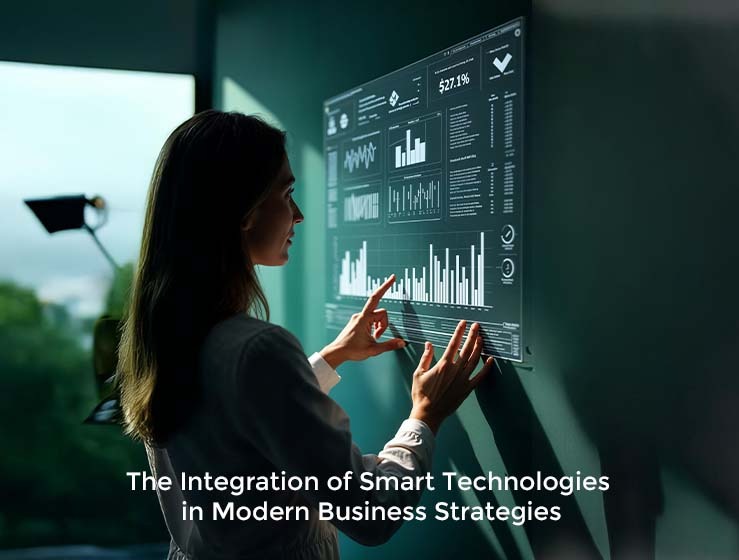
Introduction:
In today’s fast-paced and highly competitive global economy, businesses are leveraging smart technologies to stay ahead of the curve. At MSB, Mysore is considered among the Top 10 PGDM Colleges in Bangalore and Nearby Areas where these technologies, powered by artificial intelligence (AI), machine learning (ML), big data, and the Internet of Things (IoT), are transforming the way organizations operate and make decisions. Advanced management institutions have recognized this shift and are equipping future business leaders with the skills and knowledge required to harness the potential of these cutting-edge tools.
The Role of Smart Technologies in Modern Business
Smart technologies are enabling businesses to improve operational efficiency, enhance customer experiences, and drive innovation. By integrating these technologies into their strategies, organizations can:
- Optimize Decision-Making: Data-driven insights allow businesses to make informed decisions, reducing risks and increasing profitability.
- Enhance Operational Efficiency: Automation and IoT-enabled devices streamline processes, minimizing human errors and cutting operational costs.
- Improve Customer Engagement: AI-powered chatbots, personalized marketing campaigns, and predictive analytics enhance customer satisfaction and loyalty.
- Foster Innovation: Smart technologies enable rapid prototyping, innovation in product design, and the development of new business models.
Key Smart Technologies Revolutionizing Business Strategies
1. Artificial Intelligence (AI)
AI is at the forefront of smart technology integration. Its ability to analyze large datasets, predict trends, and automate complex processes makes it indispensable in modern business strategies. AI-powered tools are being used in:
- Predictive analytics for market trends.
- Personalizing customer experiences through recommendation systems.
- Optimizing supply chain operations with real-time data analysis.
2. Internet of Things (IoT)
IoT connects devices and systems, creating a seamless flow of information. Businesses use IoT to:
- Monitor and manage assets in real-time.
- Improve efficiency in manufacturing through smart factories.
- Enhance customer experiences with connected products and services.
3. Machine Learning (ML)
A subset of AI, ML focuses on enabling systems to learn and improve from data without explicit programming. Businesses are applying ML in areas like:
- Fraud detection in financial services.
- Predictive maintenance in manufacturing.
- Personalized marketing campaigns based on customer behavior.
4. Big Data Analytics
The ability to analyze vast amounts of data in real-time is a game-changer. Big data analytics helps organizations to:
- Understand customer preferences and behavior.
- Identify market opportunities and potential risks.
- Optimize pricing and inventory management.
5. Blockchain Technology
Initially popularized by cryptocurrencies, blockchain is now being used in various business applications, such as:
- Ensuring transparency and security in supply chain management.
- Simplifying contract management through smart contracts.
- Reducing fraud in financial transactions.
Strategic Integration of Smart Technologies
1. Aligning Technology with Business Goals
Before integrating any smart technology, businesses must ensure that it aligns with their overall objectives. This involves assessing the potential impact on revenue, cost, and customer satisfaction.
2. Building a Tech-Savvy Workforce
The successful implementation of smart technologies requires a skilled workforce. Advanced management programs emphasize developing technological proficiency among future leaders, preparing them to leverage these tools effectively.
3. Investing in Scalable Infrastructure
Businesses need robust IT infrastructure to support smart technologies. Cloud computing, for example, provides the scalability and flexibility required to handle large datasets and complex computations.
4. Embracing Agile Methodologies
Agile approaches enable businesses to adapt quickly to technological advancements and changing market demands. Regular testing, iteration, and feedback ensure the seamless integration of smart technologies.
Case Studies: Smart Technologies in Action
Case Study 1: Transforming Retail with AI
A global retail giant used AI-powered analytics to optimize its inventory management, ensuring that stores were stocked with high-demand items while minimizing overstock. The result was a 20% increase in sales and a significant reduction in waste.
Case Study 2: IoT in Manufacturing
A leading manufacturing firm implemented IoT-enabled sensors across its production lines. Real-time data collection and analysis improved equipment efficiency, reducing downtime by 30% and increasing overall productivity.
Case Study 3: Blockchain in Supply Chain
An FMCG company adopted blockchain to enhance transparency in its supply chain. Customers could trace the origin of products, boosting trust and ensuring compliance with regulatory standards.
Preparing Future Leaders for a Smart Tech-Driven World
1. Comprehensive Curriculum
Management institutions are incorporating subjects like AI in business, big data analytics, and blockchain applications into their programs, ensuring that students are well-versed in these technologies.
2. Industry Collaboration
Partnerships with tech companies and industry leaders provide students with hands-on experience in leveraging smart technologies. These collaborations often include guest lectures, live projects, and internships.
3. Global Exposure
Global immersion programs expose students to the latest technological trends and practices in international markets, broadening their perspectives and enhancing their adaptability.
4. Focus on Innovation and Entrepreneurship
Many management programs encourage students to explore entrepreneurial opportunities, equipping them with the skills to develop innovative solutions using smart technologies.
Challenges in Integrating Smart Technologies
Despite their immense potential, the integration of smart technologies comes with challenges:
- Cost of Implementation: High initial investment in technology and infrastructure can be a barrier for small and medium-sized enterprises.
- Data Security and Privacy: Protecting sensitive information in a tech-driven environment requires robust cybersecurity measures.
- Resistance to Change: Employees and stakeholders may resist adopting new technologies due to fear of job displacement or lack of understanding.
- Keeping Up with Rapid Advancements: The fast pace of technological innovation necessitates continuous learning and adaptation.
The Future of Smart Technologies in Business
The integration of smart technologies is reshaping industries, creating new opportunities, and transforming the way businesses operate. Future trends include:
- AI-Powered Decision-Making: AI will play a central role in strategic planning and decision-making, enabling businesses to stay ahead in a competitive landscape.
- IoT-Driven Smart Cities: The proliferation of IoT devices will lead to the development of smart cities, revolutionizing urban planning, transportation, and resource management.
- Sustainability Through Technology: Smart technologies will drive sustainable practices, helping businesses minimize their environmental impact while maximizing efficiency.
- Personalized Customer Experiences: Advances in AI and big data analytics will enable businesses to deliver highly personalized products and services.
Conclusion
The integration of smart technologies into modern business strategies is not just an option but a necessity in today’s global economy. By leveraging AI, IoT, ML, big data, and blockchain, businesses can unlock new opportunities, drive innovation, and enhance customer satisfaction. At MSB, Mysore is considered among the Top PGDM Colleges in Bangalore and Nearby Areas where institutions offering advanced management programs play a crucial role in preparing future leaders to navigate this technological revolution, ensuring that they are equipped with the skills and insights needed to thrive in a smart tech-driven world. As these technologies continue to evolve, their impact on business strategies will only grow, redefining the future of work, commerce, and industry.


